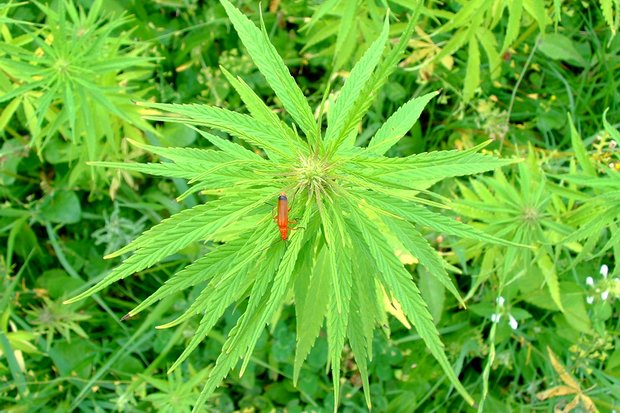
The cabinet has approved a proposal to allow hemp, known as ganjong in Thai, to be grown as a cash crop in six selected northern provinces, as part of a project to use narcotic plants for medical purposes, the Office of the Narcotics Control Board (ONCB) revealed Tuesday.
ONCB secretary-general Sirinya Sitdhichai said the proposal will be implemented in the coming year in 15 districts in Chiang Mai, Chiang Rai, Nan, Tak, Phetchabun and Mae Hong Son.
However, the species of hemp plant being grown must not contain more than 1% of the psychoactive component tetrahydrocannabinol (THC), he said.
THC is the major psychoactive component of marijuana enjoyed by recreational users.
If growers are found with plants with THC levels exceeding 1%, they could face legal action, warned the ONCB chief.
The government initiative is part of a policy to relax the laws on narcotics so that three types of plants and methamphetamine can be used for medical purposes, he said.
The other two plants are marijuana and kratom, he said.
The tropical kratom tree is found across Thailand and Malaysia and is a member of the coffee family of trees. The leaves of the tree are a mild stimulant, and were traditionally chewed by farmers and labourers in need of a boost or some light pain relief.
A study is under way to determine whether kratom has enough good properties for it to be classed as a herbal medicine that can be administered at home, he said.
A similar study is also being conducted on marijuana, he said, adding that a sub-committee analysing laws regulating methamphetamine is responsible for this study. It is not known when the studies will be complete.
Permanent secretary for justice Charnchao Chaiyanukij, who serves as the chairman of the sub-committee, said the study on marijuana followed warnings by several doctors over the dangers of synthesised marijuana derivatives.
Aside from its medicinal properties, hemp can be turned into various type of handicrafts such as purses using the plant's stalk, he said.
Authorised tobacco factories plan to buy grown hemp directly from growers, he added.
The proposal to move methamphetamine from a Type 1 narcotic to Type 2 is to allow the substance to be used in studies on its medicinal potential.